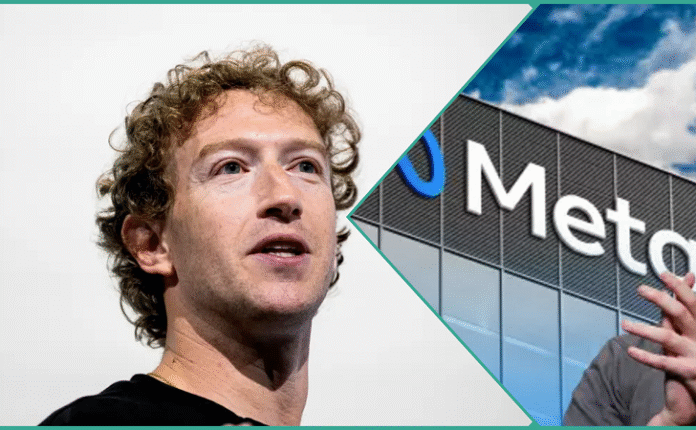As ChatGPT and similar AI technologies become increasingly integrated into educational settings, they herald a new frontier in teaching and learning. This transformation offers remarkable opportunities for personalized instruction, enhanced engagement, and innovative assessment.
However, the rapid adoption of ChatGPT in education also presents a complex array of challenges that educators, administrators, policymakers, and other stakeholders must address to harness its full potential responsibly and effectively.


This blog post delves deeply into the major challenges faced in ChatGPT education and presents effective strategies to overcome these obstacles, ensuring that AI tools serve to enhance the educational experience rather than create barriers or distractions for learners and educators alike.
Understanding ChatGPT Education: Key Concepts and Frameworks
ChatGPT, a generative AI language model developed by OpenAI, produces human-like text responses based on user prompts. Its capabilities extend to assisting students with writing, research, and problem-solving tasks, while also supporting educators in content creation, feedback, and personalized instruction.
However, the integration of this technology into educational settings brings up a wide range of important questions and significant challenges related to maintaining academic integrity, ensuring equity among students, adapting pedagogical methods effectively, and promoting the ethical use of such tools.
Key Concepts in ChatGPT Education
Academic Integrity
A central and ongoing concern in education today is ensuring that students’ work genuinely reflects their efforts and understanding, rather than being improperly generated or heavily assisted by artificial intelligence tools. The remarkable ease with which ChatGPT can produce essays, summaries, or detailed answers presents a significant risk of facilitating plagiarism or unauthorized content creation.
This development poses serious challenges to traditional assessment methods, which were designed with human-generated work in mind. Consequently, educators and institutions must develop and implement new strategies and approaches to maintain academic honesty, integrity, and fairness in the learning process.
Bias and Misinformation
ChatGPT’s outputs are directly influenced by the vast amount of data it was trained on, which inherently includes various societal biases and inaccuracies present in that data. As a result, this can sometimes lead to the generation of discriminatory or misleading content, which in turn can negatively impact the overall quality and inclusivity of educational materials and experiences.
It is therefore crucial for educators to remain vigilant about these potential biases and actively teach students how to critically assess and evaluate the information produced by AI systems. This critical approach will help ensure that learners can distinguish between reliable content and biased or inaccurate information.
Digital Divide
Access to ChatGPT and other similar AI tools is far from uniform across different regions and communities. Various socio-economic factors and infrastructural challenges result in some students and schools being unable to access the necessary devices, stable and reliable internet connections, or even the digital skills required to use these technologies effectively.
This ongoing digital divide poses a significant risk of exacerbating existing educational inequalities, leaving behind those who are already disadvantaged. Without proactive and targeted policies, as well as strategic investments in infrastructure and digital literacy programs, these gaps are likely to widen even further, making it crucial to address these issues urgently.
Data Privacy
Using ChatGPT involves the processing of user data, which naturally raises important concerns about the ways in which student information is collected, stored, managed, and protected. Ensuring strict compliance with privacy regulations such as FERPA, as well as maintaining full transparency regarding how data is used and handled, is critical to building and preserving trust. These measures are essential for effectively safeguarding the privacy and rights of students in educational environments.
Teacher Training
Effective and meaningful use of ChatGPT in educational settings requires educators to have a deep understanding of its capabilities, potential limitations, and the ethical considerations involved.
Comprehensive teacher training and ongoing professional development programs are essential to equip educators with the necessary skills and knowledge to seamlessly integrate AI tools into their teaching practices. This includes designing assessments that are resilient to AI-generated responses and guiding students to engage with AI technologies responsibly and ethically throughout their learning journey.
Ethical AI Use
The responsible and thoughtful deployment of ChatGPT in educational settings requires a strong commitment to transparency, fairness, and accountability at every level. Educational institutions must take proactive steps to develop comprehensive policies that not only promote the ethical use of AI technologies but also actively encourage continuous human oversight to ensure these tools are applied appropriately.
Additionally, it is essential to create and foster open discussions about the broader societal impacts of AI within the learning environment, helping students and educators alike understand both the benefits and challenges associated with AI integration.
Frameworks for Integrating ChatGPT in Education
The integration of ChatGPT should be thoughtfully framed around a carefully balanced approach that effectively leverages its numerous strengths while simultaneously identifying and mitigating potential risks and challenges.
- Human-in-the-Loop Model: AI technologies serve to support and enhance the work of educators but do not take over or replace their essential roles. This approach ensures that teachers remain central as mentors, curators of knowledge, and ethical guides who shape the learning experience and uphold important values. The human element continues to be crucial in fostering critical thinking and meaningful engagement in education.
- Critical AI Literacy: Teaching students how to critically evaluate AI-generated content, identify and understand inherent biases within AI systems, and use AI tools as helpful aids rather than relying on them as complete substitutes or crutches. This approach encourages learners to develop thoughtful skepticism and analytical skills when interacting with AI technologies, ensuring they become informed users who can discern the quality and reliability of AI outputs.
- AI-Resilient Pedagogy: Designing assignments and assessments that specifically encourage creativity, deep reflection, and personalized input from students, thereby significantly reducing the chances and opportunities for misuse or exploitation by AI tools. Such approaches emphasize original thought and individualized responses, making it much harder for automated systems to provide ready-made answers that do not engage the learner. This method fosters higher-order thinking skills and authentic student engagement, which are essential in maintaining academic integrity in an era increasingly influenced by advanced AI technologies.
- Equity-Focused Access: Ensuring that all learners, regardless of their background or circumstances, have fair and equitable access to AI tools and digital resources by making substantial investments in necessary infrastructure and implementing inclusive policies that promote equal opportunities for everyone to benefit from these advanced technologies.
- Privacy and Transparency: Establishing well-defined and comprehensive data governance policies is essential for ensuring that all aspects of data management are handled responsibly and ethically. It is equally important to actively educate and inform all stakeholders, including employees, customers, and partners, about the critical concerns surrounding data privacy. This approach helps build trust and promotes a culture of accountability and openness regarding how data is collected, stored, and used.
ChatGPT education sits at the intersection of technology and pedagogy, offering transformative potential alongside significant challenges. Understanding key concepts such as academic integrity, bias, equity, privacy, teacher readiness, and ethical use provides a foundation for responsible and effective AI integration.
Frameworks that emphasize comprehensive human oversight, promote critical literacy skills, ensure equitable access for all learners, and uphold ethical governance principles are essential to effectively harness the many benefits of ChatGPT. These frameworks play a crucial role in safeguarding fundamental educational values and achieving positive learning outcomes in an increasingly technology-driven environment.
This overview draws on recent research highlighting both the promise and pitfalls of ChatGPT in education, underscoring the need for thoughtful, informed approaches to AI adoption in learning environments.
Current Trends and Developments in ChatGPT Education
The educational landscape is currently undergoing a rapid and profound transformation due to the widespread introduction and integration of ChatGPT along with other similar advanced AI technologies. These innovative tools are significantly reshaping how students acquire knowledge, how educators approach their teaching methods, and how educational institutions handle critical issues such as academic integrity and equity among learners.
Below are the key trends and important developments that are defining the evolving role of ChatGPT in education:
Widespread Adoption in Education
ChatGPT has seen explosive growth since its release, quickly becoming a core learning aid worldwide. Recent data indicates that approximately 40% to 50% of ChatGPT users are students across high school, college, and graduate levels.
This rapid adoption is driven by ChatGPT’s accessibility, affordability, and versatility, supporting a wide range of subjects from essay writing to coding help. Its 24/7 availability fits well with students’ flexible schedules, making it a preferred tool for homework assistance and concept clarification.
The surge in teen usage is particularly notable, with the percentage of high school students using ChatGPT for schoolwork doubling from 15% in 2023 to 30% in 2025. This growth is seen across diverse demographic groups, with Black and Hispanic students showing especially high increases in adoption, reflecting broader trends in digital literacy and technology access.
Academic Integrity Concerns and Policy Development
The integration of ChatGPT into classrooms has intensified concerns about academic integrity. Institutions worldwide are grappling with how to define and enforce policies around AI use. The concept of “Unauthorized Content Generation” (UCG) has emerged to describe AI-assisted misconduct, where students submit AI-generated work as their own.
In response, educators are redesigning assignments to be AI-resilient, incorporating personalized, reflective, and oral components that are harder to outsource to AI. Additionally, AI detection tools are being deployed alongside traditional plagiarism checks to uphold fairness. Clear institutional guidelines and student education on ethical AI use are becoming standard practice.
Growing Awareness of Bias and Misinformation
Research has highlighted that AI-generated content, including that from ChatGPT, can reflect and amplify dominant social biases embedded in training data. This raises concerns about misinformation and the reinforcement of stereotypes in educational materials.
To counter this, critical AI literacy is becoming an essential part of curricula. Educators are teaching students to critically evaluate AI outputs, recognize bias, and cross-check information with diverse sources. Institutions are also prioritizing the selection of AI tools with bias mitigation strategies and transparency in content generation.
Digital Equity Initiatives to Bridge the Divide
While ChatGPT offers powerful learning support, unequal access to AI tools threatens to widen educational disparities. Students in under-resourced communities often lack the devices, internet connectivity, or digital skills needed to benefit fully from AI-enhanced education.
In response, schools and policymakers are investing in digital infrastructure and affordable technology programs to promote equitable access. Community training initiatives aim to improve digital literacy among students and educators alike. Public-private partnerships are also emerging to fund inclusive AI education projects, ensuring that marginalized groups are not left behind.
Privacy and Data Security Debates
The use of ChatGPT involves processing significant amounts of user data, raising privacy concerns. Questions about how student data is collected, stored, and shared have prompted calls for greater transparency and stricter compliance with regulations such as FERPA.
Educational institutions are increasingly scrutinizing AI vendors for privacy practices and implementing policies to protect student information. Transparency about data use and obtaining informed consent are becoming standard requirements. Ongoing dialogue among stakeholders is essential to balance innovation with privacy rights.
Emphasis on Teacher Training and Professional Development
The successful integration of ChatGPT depends heavily on educators’ readiness. Increasingly, teacher training programs focus on AI literacy, ethical considerations, and pedagogical strategies for AI-enhanced learning. Educators are learning to design AI-compatible curricula, create AI-resilient assessments, and guide students in responsible AI use.
Professional development resources, communities of practice, and AI toolkits are expanding to support teachers. The “human-in-the-loop” approach is emphasized, where AI augments but does not replace the educator’s vital role in mentoring and ethical guidance.
AI-Powered Personalized and Immersive Learning Experiences
AI platforms like ChatGPT are enabling highly personalized learning by adapting to individual students’ pace, style, and needs. This personalized approach increases engagement, motivation, and retention. ChatGPT also supports diverse learners by offering language translation, simplified explanations, and tailored materials for special education.
Beyond text, AI-driven immersive technologies such as AR and VR are gaining traction, providing hands-on, experiential learning opportunities that complement AI tutoring. Gamification elements integrated with AI tools further enhance student engagement.
Summary of the Current Trends and Developments in ChatGPT Education
| Trend | Description | Impact/Response |
|---|---|---|
| Widespread Adoption | 40-50% of ChatGPT users are students; usage is doubling among teens | Integration into learning ecosystems, increased reliance |
| Academic Integrity Concerns | Emergence of Unauthorized Content Generation policies; AI detection tools | AI-resilient assignments; ethical AI use in education |
| Bias and Misinformation Awareness | Recognition of social biases in AI outputs | Critical AI literacy; bias mitigation in AI tool selection |
| Digital Equity Initiatives | Addressing access disparities through infrastructure and training | Investments in digital inclusion, community programs |
| Privacy Debates | Concerns over data collection and compliance with privacy laws | Stricter data policies, transparency, and consent |
| Teacher Training Emphasis | Growing focus on AI literacy and ethical pedagogy for educators | Professional development; human-in-the-loop approaches |
| Personalized & Immersive Learning | AI-powered tailored instruction and AR/VR integration | Enhanced engagement and accessibility; gamification |
The integration of ChatGPT into education is reshaping teaching and learning in profound ways. While its adoption offers personalized support and efficiency, it also brings challenges around integrity, bias, equity, privacy, and educator preparedness. Addressing these challenges requires coordinated efforts from educators, institutions, policymakers, and technology providers.
By embracing AI literacy, ethical frameworks, equitable access initiatives, and robust teacher training, the educational community can harness ChatGPT’s potential to enhance learning while safeguarding core educational values.
Key Challenges to Conquer in ChatGPT Education
The integration of ChatGPT into educational settings offers transformative potential but also presents critical challenges that must be thoughtfully addressed to ensure AI enhances rather than undermines learning. Below are the seven key challenges educators, administrators, and policymakers face, along with actionable strategies to overcome them.
Academic Integrity and Plagiarism
- Challenge: ChatGPT’s ability to generate coherent, high-quality text quickly poses a serious threat to academic integrity. Students may misuse it to complete assignments without genuine understanding, masking learning gaps and compromising educators’ ability to assess true competencies. The emerging concept of Unauthorized Content Generation (UCG) captures AI-assisted academic misconduct, encompassing the unapproved use of AI tools in credit-bearing work.
Strategies to Address:
- Design AI-Resilient Assignments: Create tasks requiring personalized responses, critical reflections, or oral presentations that are difficult for AI to replicate authentically.
- Explicit AI Use Policies: Clearly outline acceptable AI use in syllabi and institutional guidelines to set expectations.
- AI Detection Tools: Employ AI content detectors alongside traditional plagiarism checkers to identify unauthorized AI-generated work.
- Ethical AI Education: Teach students about responsible AI use, emphasizing the value of authentic learning and integrity.
Bias and Misinformation in AI-Generated Content
- Challenge: ChatGPT is trained on vast datasets that inherently contain social biases, which can manifest in its outputs. This risks underrepresenting marginalized perspectives and reinforcing dominant ideologies, limiting students’ exposure to diverse viewpoints, and potentially spreading misinformation.
Mitigation Strategies:
- Critical AI Literacy: Educate students to critically evaluate AI-generated content, identify biases, and cross-check information.
- Select Bias-Aware AI Tools: Choose AI platforms with transparent content policies and active bias mitigation mechanisms.
- Diverse Data Sources: Encourage the use and inclusion of diverse perspectives in AI training and educational materials.
- Equity-Focused Discussions: Foster classroom conversations about representation, fairness, and the societal impact of AI-generated content.
Over-Reliance on AI and Skill Development
- Challenge: Excessive dependence on ChatGPT may stunt the development of essential skills such as critical thinking, creativity, problem-solving, and independent research. Students risk becoming passive consumers of AI-generated answers rather than active learners.
Counter Strategies:
- Balanced Learning Activities: Combine AI use with traditional, hands-on learning that encourages active engagement.
- AI as a Tool, Not an Answer: Encourage students to use ChatGPT for brainstorming, drafting, or revision, not as a substitute for original work.
- Human-Centered Assignments: Design tasks requiring human judgment, creativity, and synthesis beyond AI’s capabilities.
- Mentorship and Feedback: Provide personalized guidance emphasizing skill growth and deeper understanding.
Equity and Access: The Digital Divide
- Challenge: AI-powered education risks exacerbating existing inequities. Students in underfunded schools, rural areas, or low-income households may lack access to devices, reliable internet, or digital literacy necessary to benefit from ChatGPT.
Solutions to Bridge the Divide:
- Infrastructure Investment: Allocate resources to improve internet connectivity and provide affordable devices.
- Low-Cost or Offline AI Tools: Develop AI solutions that function with limited connectivity or on low-end devices.
- Inclusive Policies: Prioritize equitable distribution of technology and digital resources.
- Community and Teacher Training: Offer programs to boost digital literacy for students, educators, and families.
- Public-Private Partnerships: Collaborate with industry and nonprofits to fund access initiatives.
Data Privacy and Security
- Challenge: ChatGPT’s operation involves collecting and processing large volumes of user data, raising concerns about student privacy, unauthorized data collection, and compliance with laws such as FERPA.
Protective Measures:
- Compliance Vetting: Institutions must rigorously evaluate AI tools for adherence to privacy regulations.
- Clear Data Policies: Establish transparent data use policies and obtain informed consent from users.
- Minimal Data Collection: Limit data gathering to what is strictly necessary for educational purposes.
- Stakeholder Education: Inform students, parents, and staff about data privacy risks and safeguards.
- Advocacy: Support stronger legal frameworks regulating AI data use in education.
Teacher Training and Professional Development
- Challenge: Educators need a deep understanding of AI’s capabilities, limitations, and ethical implications to integrate ChatGPT effectively. Without adequate training, teachers may feel overwhelmed or misuse the technology, reducing its educational benefits.
Recommendations:
- Ongoing AI Literacy Training: Provide continuous professional development focused on AI tools and pedagogy.
- Resources and Communities: Create support networks and share best practices among educators.
- Human-in-the-Loop Approach: Emphasize AI as a supplement to—not a replacement for—teacher expertise.
- Curriculum Design Training: Help educators develop AI-compatible curricula and assessments.
Ethical Considerations and Responsible AI Use
- Challenge: The ethical use of ChatGPT involves transparency, fairness, accountability, and respect for human dignity. Stakeholders must navigate complex questions about AI’s influence on knowledge creation, authority, and learning relationships.
Promoting Ethical AI Use:
- Institutional Ethics Policies: Develop comprehensive guidelines governing AI use in education.
- Student Engagement: Involve learners in discussions about AI’s societal and ethical implications.
- Monitoring AI Outputs: Regularly audit AI-generated content for fairness, accuracy, and bias.
- Responsible Innovation: Encourage AI development that centers human values and educational goals.
Summary of the Key Challenges to Conquer in ChatGPT Education
| Challenge | Key Issues | Strategies to Conquer |
|---|---|---|
| Academic Integrity | Unauthorized AI-generated work | AI-resilient assignments, detection tools, and ethical education |
| Bias and Misinformation | Embedded social biases, misinformation | Critical AI literacy, bias-aware tools, and diverse data |
| Over-Reliance on AI | Skill erosion, passive learning | Infrastructure investment, inclusive policies, and training |
| Equity and Access | Digital divide, unequal technology access | Vetting, clear policies, and minimal data collection |
| Data Privacy and Security | Data misuse, privacy law compliance | Vetting, clear policies, minimal data collection |
| Teacher Training | Lack of AI knowledge, ethical concerns | Ongoing PD, support networks, human-in-the-loop |
| Ethical AI Use | Transparency, fairness, accountability | Ethics policies, student engagement, and output monitoring |
Overcoming these significant challenges is essential for the responsible and effective integration of ChatGPT into educational settings. By carefully adopting well-considered policies, actively fostering critical literacy skills among students, ensuring equitable access for all learners, rigorously protecting user privacy, and providing strong support and training for educators, educational institutions can successfully unlock the transformative potential of AI technologies. At the same time, they can preserve and safeguard the fundamental core values that underpin quality education and student development.
FAQs
Is using ChatGPT considered cheating?
The answer depends largely on your institution’s policies and the specific assignment guidelines. Using ChatGPT without explicit authorization or submitting AI-generated work as your original effort is generally regarded as academic misconduct. It’s important for students to understand and follow their school’s rules regarding AI use to maintain academic integrity.
How can educators detect AI-generated content?
Educators have developed several effective strategies to identify and detect unauthorized use of AI tools and technologies in academic work:
- AI Detection Software: Tools designed to flag AI-generated text can be integrated into plagiarism checks.
- AI-Resilient Assignments: Designing tasks that require personal reflection, creativity, or oral presentations makes it harder for AI to produce acceptable answers.
- Personalized Assessments: Oral exams, in-class writing, and project-based evaluations help verify student understanding beyond written submissions.
What are the main biases in ChatGPT’s outputs?
ChatGPT’s responses often mirror biases present in its training data, which predominantly reflect dominant social identities. This can lead to overrepresentation of certain cultural perspectives while marginalizing others, potentially reinforcing stereotypes or excluding diverse viewpoints. Awareness and critical evaluation are essential to mitigate these biases.
How can schools address the digital divide in AI education?
To guarantee fair and equitable access to advanced AI tools such as ChatGPT, educational institutions and schools can implement several strategic measures and initiatives designed to bridge the digital divide and support all students effectively:
- Invest in reliable internet infrastructure and affordable devices.
- Provide digital literacy training for students, teachers, and families.
- Implement inclusive policies that prioritize resource distribution to underserved communities.
- Foster partnerships with governments and the private sector to support technology access initiatives.
What privacy risks does ChatGPT pose to students?
ChatGPT collects and processes user data during interactions, sometimes without explicit consent or full transparency. This raises concerns about data security, unauthorized data sharing, and compliance with privacy laws such as FERPA. Educational institutions must carefully vet AI tools, establish clear data policies, and educate stakeholders about privacy protections.
In Conclusion
ChatGPT ushers in a powerful new frontier in education, offering transformative possibilities that can revolutionize teaching and learning. Its ability to personalize instruction, support creative problem-solving, and provide instant feedback holds immense promise.
However, alongside these opportunities lie significant challenges—academic integrity concerns, inherent biases, risks of over-reliance, digital equity gaps, data privacy issues, the need for teacher readiness, and complex ethical considerations.
Acknowledging these challenges openly is the first step toward harnessing ChatGPT’s full potential. Educational communities—comprising educators, administrators, policymakers, technologists, parents, and students—must collaborate closely to develop thoughtful, human-centered strategies. This includes crafting AI-resilient curricula, fostering critical AI literacy, ensuring equitable access, safeguarding privacy, and embedding ethical frameworks into AI use.
By embracing continuous dialogue and adaptive policies, institutions can transform perceived threats into opportunities for enriched, inclusive, and effective learning experiences. With responsible integration, ChatGPT can become a trusted partner in education’s evolving landscape, empowering learners and educators alike to thrive in the digital age.
Discover more from BizTechNomy
Subscribe to get the latest posts sent to your email.


